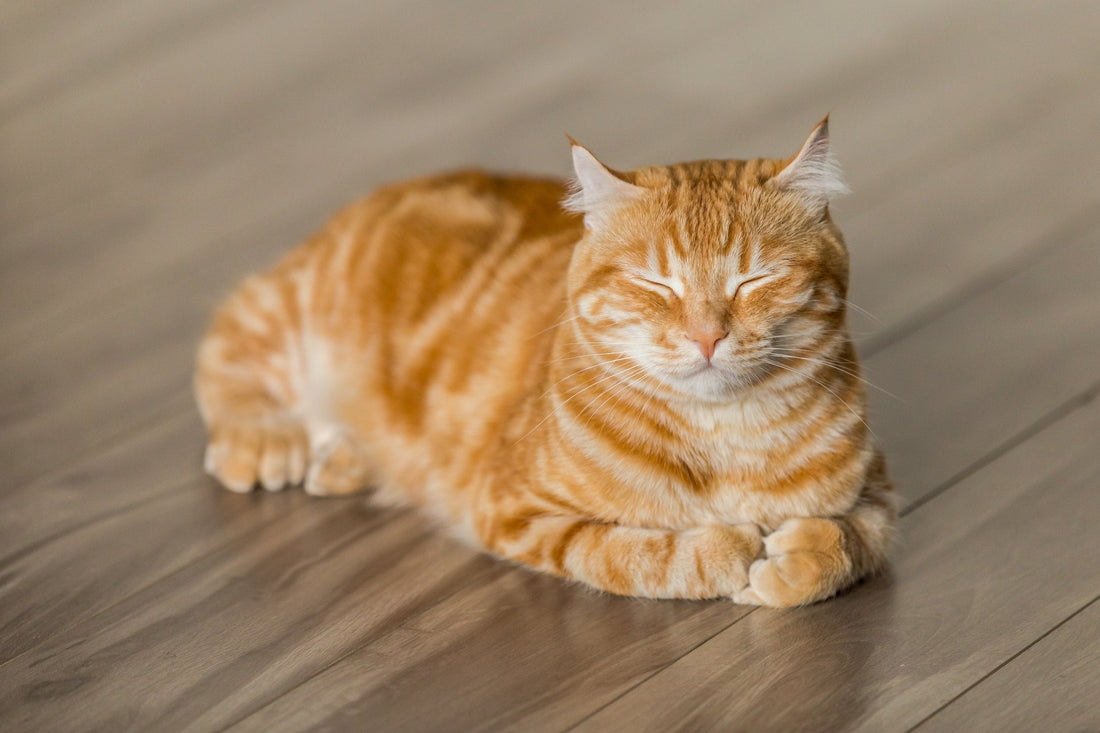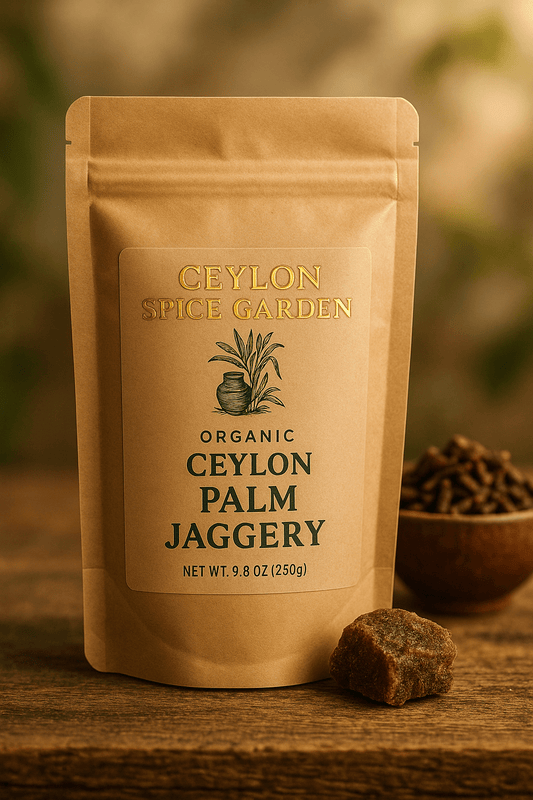
Is Ceylon Cinnamon Safe for Cats with Arthritis? Expert Safety Guide | Ceylon Spice Garden
Is Ceylon Cinnamon Safe for Cats with Arthritis?
Table of Contents
Understanding Feline Arthritis: The Need for Safe Solutions
Feline arthritis affects over 90% of cats over age 12 and up to 40% of cats over age 8. Unlike dogs, cats are masters at hiding pain, making arthritis diagnosis challenging for pet owners and veterinarians alike.
Common Signs of Arthritis in Cats
- Reduced jumping ability - Difficulty reaching favorite perches
- Stiffness after rest - Slow to move after sleeping
- Changes in litter box habits - Avoiding high-sided boxes
- Decreased grooming - Unkempt appearance, especially rear areas
- Behavioral changes - Increased hiding, reduced social interaction
- Altered sleeping patterns - Sleeping in unusual positions or locations
Given cats' sensitivity to many substances that are safe for other animals, finding natural arthritis remedies requires extreme caution and veterinary guidance.
Why Ceylon Cinnamon is Dangerous for Cats
Critical Safety Information
Cats lack specific liver enzymes (glucuronyl transferases) needed to process many compounds found in cinnamon, including cinnamaldehyde and eugenol. This metabolic limitation makes cats extremely vulnerable to cinnamon toxicity, regardless of the variety.
Unique Feline Metabolic Vulnerabilities
- Deficient Phase II Detoxification: Cats cannot efficiently process phenolic compounds found in cinnamon
- Slower Elimination: Toxic compounds accumulate faster than they can be eliminated
- Essential Oil Sensitivity: Even small amounts of cinnamon essential oils can cause severe reactions
- Liver Stress: Already compromised livers in older arthritic cats are at even higher risk
Specific Compounds of Concern in Ceylon Cinnamon
| Compound | Found in Ceylon Cinnamon | Toxicity Risk for Cats |
|---|---|---|
| Cinnamaldehyde | Yes (3-5%) | High Risk |
| Eugenol | Yes (Up to 10%) | Very High Risk |
| Coumarin | Yes (Low levels) | Moderate Risk |
| Linalool | Yes (Trace amounts) | High Risk |
Ceylon vs Cassia Cinnamon: Both Dangerous for Cats
While Ceylon cinnamon from Ceylon Spice Garden is safer than Cassia cinnamon for humans and dogs due to lower coumarin content, both varieties pose significant risks to cats.
Comparative Risk Assessment for Cats
| Risk Factor | Ceylon Cinnamon | Cassia Cinnamon |
|---|---|---|
| Coumarin Toxicity | Low but Still Risky | Extremely High Risk |
| Eugenol Content | High Risk | Very High Risk |
| Essential Oil Concentration | Dangerous for Cats | Extremely Dangerous |
| Overall Safety for Cats | AVOID | NEVER USE |
Important Note: Even though Ceylon cinnamon is the premium, safer option for humans, it still contains compounds that cats cannot safely metabolize.
Recognizing Cinnamon Toxicity in Cats
If a cat has been exposed to cinnamon, owners should watch for these symptoms and seek immediate veterinary care:
Immediate Symptoms (0-4 hours)
- Vomiting and diarrhea - Often the first signs
- Excessive drooling - Due to mouth and throat irritation
- Difficulty breathing - Respiratory distress
- Lethargy - Unusual tiredness or weakness
Progressive Symptoms (4-24 hours)
- Liver dysfunction - Yellowing of gums or eyes
- Blood clotting issues - Unusual bleeding or bruising
- Neurological signs - Disorientation, tremors
- Heart rate changes - Rapid or irregular heartbeat
Emergency Action Required
If you suspect your cat has ingested cinnamon in any form, contact your veterinarian or pet poison control immediately. Do not wait for symptoms to develop - early intervention is critical for the best outcome.
Safe Natural Alternatives for Feline Arthritis
Fortunately, several cat-safe natural approaches can help manage arthritis symptoms:
Omega-3 Fatty Acids
Fish oil supplements specifically formulated for cats can reduce inflammation and support joint health safely.
Glucosamine & Chondroitin
Feline-specific joint supplements support cartilage health and may slow arthritis progression.
Weight Management
Maintaining optimal weight reduces joint stress and is one of the most effective arthritis treatments.
Environmental Modifications
Heated beds, ramps, and lower litter boxes can significantly improve comfort and mobility.
Gentle Exercise
Interactive play sessions encourage movement without overexertion, maintaining joint flexibility.
Prescription Medications
Veterinary-prescribed NSAIDs and pain medications specifically formulated for cats.
Proven Natural Supplements for Cats
- Green-lipped Mussel Extract: Contains natural anti-inflammatory compounds safe for cats
- Turmeric (Curcumin): Only in veterinary-formulated, cat-safe preparations
- Boswellia: Anti-inflammatory herb that may be safer than cinnamon alternatives
- MSM (Methylsulfonylmethane): Supports joint health when properly dosed for cats
Veterinary-Approved Arthritis Treatments
Pharmaceutical Options
- Meloxicam (Metacam): Most commonly prescribed cat-safe NSAID
- Robenacoxib (Onsior): Newer NSAID with excellent safety profile for cats
- Gabapentin: Helps manage chronic pain associated with arthritis
- Tramadol: Pain medication for moderate to severe arthritis discomfort
Alternative Veterinary Therapies
- Acupuncture: Increasingly used for feline pain management
- Cold Laser Therapy: Reduces inflammation and promotes healing
- Physical Therapy: Specialized exercises to maintain mobility
- Injectable Joint Supplements: Direct delivery of joint-supporting nutrients
Working with Your Veterinarian
The most effective arthritis management plans combine multiple approaches tailored to each cat's specific needs. Your veterinarian can help develop a comprehensive treatment strategy that may include:
- Regular pain assessment and medication adjustment
- Nutritional counseling for optimal weight management
- Environmental modification recommendations
- Monitoring for medication side effects
- Alternative therapy referrals when appropriate
Arthritis Prevention and Long-term Management
Prevention Strategies
- Maintain Ideal Weight: Obesity significantly increases arthritis risk and severity
- Encourage Regular Activity: Consistent, gentle exercise maintains joint flexibility
- Provide Proper Nutrition: High-quality diets support overall joint health
- Early Veterinary Care: Regular check-ups can identify arthritis before symptoms worsen
Environmental Management
- Comfortable Bedding: Orthopedic beds provide joint support
- Easy Access: Steps or ramps to favorite locations
- Litter Box Modifications: Lower sides for easier entry/exit
- Warm Environment: Heated areas can reduce stiffness
Long-term Quality of Life Considerations
Managing feline arthritis requires ongoing assessment and adjustment of treatment strategies. Success depends on early intervention, consistent treatment, and regular monitoring rather than searching for single "miracle" remedies that may be unsafe.
When to Seek Professional Veterinary Help
Immediate Veterinary Attention Required
- Sudden inability to walk or jump
- Visible signs of severe pain (crying, hiding, aggression when touched)
- Complete loss of appetite for more than 24 hours
- Difficulty urinating or defecating due to mobility issues
- Any suspected ingestion of cinnamon or other toxic substances
Schedule Veterinary Consultation For
- Gradual changes in mobility or activity levels
- Increased sleeping or hiding behaviors
- Changes in grooming habits
- Reluctance to use litter box
- Any questions about safe arthritis management options
Remember: Your veterinarian is your best resource for developing safe, effective arthritis management strategies that won't put your cat at risk.











